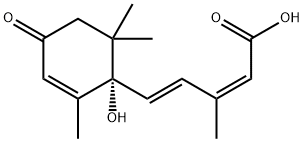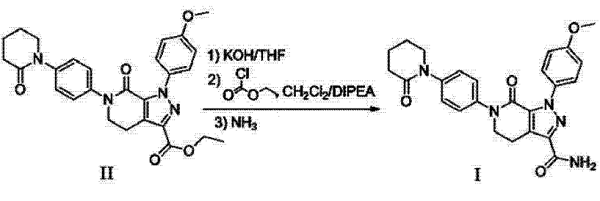Explore the chemical properties of (+)-abscisic acid and its biological applications
Introduction
Plant hormones are a kind of trace organic substances in plants, which play a vital role in the growth and development of plants. (+) -abscisic acid, as one of the five natural plant growth regulators, has attracted wide attention due to its unique functions and extensive biological activities in plants. This paper will introduce the effects that (+)-abscisic acid made on plants and the mechanism behind it.
Properties
(+)-Abscisic acid is a pale solid powder at room temperature and pressure, with a melting point of about 163°C. It is soluble in methanol, ethanol, acetone, chloroform, ethyl acetate, and other organic solvents, and slightly soluble in water. In addition, it is sensitive to light and belongs to strong light decomposition compounds.
(+)-Abscisic acid in the storage process should avoid contact with strong oxidants, acids, acid chlorides, acid anhydrides, carbon dioxide, and other substances, to avoid chemical reactions leading to deterioration. At the same time, it should be stored in a dry, cool, and dark environment to maintain its stability.
Plant Growth Regulation
(+)-Abscisic acid, as a plant hormone that inhibits growth, plays a significant role in plant growth and development. It promotes the shedding of leaves, flowers, and fruits, which helps plants protect themselves in stressful conditions. In addition, it can promote the dormancy of perennial woody plants and seeds, and improve the adaptability of plants to adverse environmental conditions such as low temperature, high temperature, drought, waterlogging, and salt.
In agricultural production, (+) -abscisic acid is widely used to improve crop stress resistance and yield. For example, when growing crops in arid areas, application can increase the drought resistance of the crops and reduce water evaporation, thus increasing crop yields. In addition, it can also be used to promote the early ripening of crops and extend the dormant period to adapt to different climatic conditions and market demands.1

Improved Adaptability to Adversity
(+)-Abscisic acid also plays an important role in improving plant resilience to stress. When plants are subjected to low temperature, drought, salt, and alkali stress, it can induce the re-synthesis of certain enzymes in plants, and thus increase the cold resistance, flood resistance, and salt resistance of plants. This mechanism is helpful to improve the survival ability and growth quality of plants under adverse conditions.
In recent years, with the increasingly serious environmental problems, the improvement of plant adaptability to stress has become a hot issue in agricultural production. (+) -abscisic acid, as an effective stress adaptation enhancer, has broad application prospects in agricultural production. Through application, it can improve the resistance of crops to adversity stress and reduce the impact of the environment on agricultural production, to achieve sustainable development of agriculture.2
Other Applications
In addition to the above applications, (+)-abscisic acid also plays an important role in plant cell differentiation and stomatal closure. For example, (+)-abscisic acid can prevent gibberellanic acid and cytokinin from promoting the growth of plant cells, thereby controlling the growth of plant organs. In addition, the signal transduction pathway of stomatal closure can be regulated to promote stomatal closure and inhibit stomatal opening, thus affecting photosynthesis and transpiration of plants.3
References:
[1] ANNA-CHIARA MUSTILLI. Arabidopsis OST1 protein kinase mediates the regulation of stomatal aperture by abscisic acid and acts upstream of reactive oxygen species production.[J]. Plant Cell, 2002, 14 12. DOI:10.1105/tpc.007906.[2] JOUNG-YOUN KANG. Arabidopsis basic leucine zipper proteins that mediate stress-responsive abscisic acid signaling.[J]. Asian Survey, 2002, 14 1: 157-165. DOI:10.1105/tpc.010362.
[3] RUTH R FINKELSTEIN C D R Srinivas S L Gampala. Abscisic acid signaling in seeds and seedlings.[J]. Journal of Clinical Psychology, 2002, 57 12 1: 1403-1419. DOI:10.1105/tpc.010441.
You may like
See also
Lastest Price from (+)-Abscisic acid manufacturers

US $0.00/g2025-04-21
- CAS:
- 21293-29-8
- Min. Order:
- 1g
- Purity:
- 98%min
- Supply Ability:
- 1000G

US $10.00/PCS2025-04-21
- CAS:
- 21293-29-8
- Min. Order:
- 1PCS
- Purity:
- 99%
- Supply Ability:
- 10 mt


